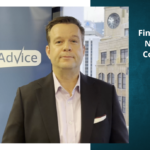Author Katrina Shanks, CEO Financial Advice NZ Article originally published on Stuff.co.nz.
There’s been a lot of discussion lately about the cost of living, with some commentators saying we’re in the middle of a cost-of-living crisis.
And though not every economist agrees, there’s no doubt with inflation running at a 30-year high and the cost of everyday basics continuing to rise, it will feel like a crisis to some.
The jump in the price of petrol in particular, due to the Russian invasion of Ukraine, will affect the price of almost everything.
So, there’s probably no better time to take a look at personal/household finances and where savings can be made to make budgets go further, and to test if your savings and investments are working as hard as they possibly can for you.
There are many ways to tackle personal and household budgets, the most basic being sorting out your must-haves from your like-to-haves.
The hardest part is being disciplined about it, setting a plan and then sticking to it.
But one of the trickiest areas can be around what to do if you are fortunate enough to have any surplus funds.
I know that right now it feels like every day, our day-to-day costs are increasing, and any surplus funds we may have are slipping away.
One question to ask is, do you put more money into your mortgage to pay it off faster, or would it be more profitable to invest more, say in a managed fund, or shares, or even KiwiSaver?
The short answer is, it depends. On lots of things.
With your mortgage, it’s mostly about your age, the level of repayments, the term you have left on your loan, and the interest rate. The great unknown, of course, is what interest rates could climb to, worst-case scenario, in later years. As we have seen since Covid arrived, that is anybody’s guess.
With investments, it’s about the risk you are prepared to take, what could happen to world commodity prices and markets, and to a lesser extent, the skill of the people running your investment.
As with your mortgage interest rate, there are unknowns here, too.
I’ve seen both happy and sad people from both options, because there’s no such thing as a sure bet.
But if I were offering advice then it would be to arm yourself with the best possible information about both options and then make your decision.
Of course, for many of us, seeking the best possible information and advice in the first place can be an issue.
A recent survey by ANZ shows many people don’t like talking to others (including friends or family) about their finances.
Of those who rarely or never talk about finances, one in five say they feel embarrassed, and one in four say they feel it’s impolite. Two in five wish they could have better conversations about their finances, while half say they have lied about money because it’s easier than talking about it.
These are things Kiwis are traditionally not that good at doing, though we are getting better.
Last year, Financial Advice New Zealand conducted a survey to find out the difference between those who took professional financial advice and those who didn’t.
Did those who took advice really benefit from doing so or was it more of a hit-and-miss, good luck sort of thing? The results were very interesting.
More than two thirds of those who had received professional advice said doing so had helped them better understand the risks of their financial plan (77 per cent), how to achieve financial goals (74 per cent), and to stick to those plans (70 per cent).
Ninety-four per cent said they were very or reasonably confident making big financial decisions around their budgets and plans compared to 83 per cent of those who were unadvised.
While both groups had high rates of KiwiSaver contribution, those who had sought professional advice were highest at 83 per cent, while unadvised reached 72 per cent.
Some 86 per cent of advised Kiwis with a mortgage had reviewed the mortgage in the past year, but just 68 per cent of unadvised had done the same, indicating advised Kiwis understand the value of reviewing and making changes to their mortgage.
As for paying down mortgages sooner, if they had an increase in income, 75 cent of Gen Z who had sought advice did so, compared to just 25 per cent of those who had not sought advice.
Beyond KiwiSaver and property, 61 per cent of advised Kiwis were more likely to have other investments, compared to 35 per cent of unadvised.
It’s clear from this that professionally advised Kiwis are more likely to have a financial plan, review their financial products regularly, understand risk vs return, and have positive mortgage behaviours that set them up to save interest and carve years off the life of their mortgages.
As I have said many times, the key to financial wellbeing and success is to start gathering information and start the conversation.
As my financial adviser would say, “listen carefully, plan meticulously, and stick with it stubbornly”.





